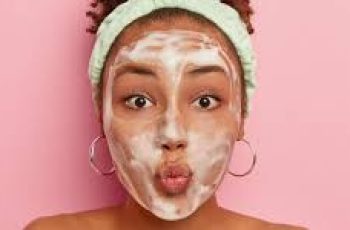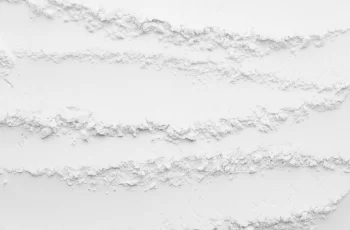
Effects of Stress on Skin
Stress, Skin, and Treatment of Stress-Related Rashes
Stress has a negative impact on the skin. Just as stress can affect your mood, appetite, and sleep patterns, it can also affect skin function.
To understand what the skin needs in stressful situations, you first need to understand how it reacts.
Stress, whether it is emotional, physical, or environmental, manifests itself in our skin in a number of ways. On a physiological level, it triggers the release of the hormone cortisol.
Elevated levels of cortisol lead to increased sebum production, making the skin more susceptible to acne and other related conditions.
Additionally, stress impairs the skin’s barrier function, weakening its ability to retain moisture and protect itself from external irritants and pathogens.
This can lead to dry, sensitive skin and an increased risk of inflammatory skin conditions such as eczema and psoriasis.
Furthermore, chronic stress can worsen existing skin conditions and accelerate the aging process. This can lead to premature wrinkles, fine lines, and loss of skin elasticity.
In addition to its direct effects, it can also indirectly affect skin health by disrupting sleep, leading to an unhealthy diet, and reducing motivation for regular skin care.
Therefore, stress management is not only essential for mental health, but also for a healthy, radiant complexion.
Effects of Stress on Skin
Studies have shown that psychological stress is associated with a weakened skin barrier function. This means that when stressed, the skin loses its ability to protect itself.
Signs of skin stress include:
Acne
Bacterial or fungal infections
Dehydrated skin
Dry/flaky skin
Pale skin
Eczema
Facial redness
Skin irritation
Itching
Psoriasis
Redness
Rosacea
What is the skin barrier?
Skin barrier function
The skin barrier protects your skin from infection and dehydration and must remain healthy to perform its function.
The weaker the skin barrier function, the more vulnerable your skin is to allergens and irritants.
Transepidermal water loss (TEWL)
TEWL indicates the amount of water that evaporates after penetrating the outermost layer of the skin (the epidermis). Simply put, it shows how much water your skin has lost.
If your skin loses more water than normal, it becomes dry and dehydrated.
If left untreated, this skin condition can develop complications that require more differentiated treatments, such as:
Redness
Irritation and/or itching
Scalyness
More noticeable wrinkles and fine lines
You may experience additional stress from your existing skin condition.
Skin problems can increase our feelings of stress.
Many tools, such as the Acne Disability Index and the Dermatology Quality of Life Index, have shown a strong link between the way our skin looks and feels and our mental health.
A study from 1966 to 2000 found that many people do not realize how much a skin problem like acne or psoriasis can affect their mood and daily life.
People with these skin problems often feel very sad or anxious, which can drastically change their lives. In fact, psychological issues play a role in about 30% of skin conditions.
Some people even consider self-harm due to the stress caused by these skin problems. It is important to understand how skin problems can affect your overall health.
Environmental stressors
Environmental stressors for the skin
Environmental stressors, such as air pollution, can severely damage the skin. Polluted air contains harmful particles and toxic chemicals that settle on the surface of the skin.
Over time, these particles can penetrate deeper into the skin’s layers, causing dehydration, inflammation, and a weakened skin barrier.
Long-term exposure can accelerate the aging process, leading to premature wrinkles, fine lines, and uneven skin tone.
Additionally, environmental pollution can increase the production of free radicals, further damaging skin cells and diminishing the skin’s natural glow and elasticity.
Protecting our skin from the harmful effects of environmental pollution is essential to maintaining a healthy and youthful appearance.
How to Prevent Stress Outbursts
Prevention Measures
The best way to prevent stress outbursts is to minimize stress factors. If you’re frequently stressed, consider how you can boost your mental health.
Sometimes life gets in the way, and mental health issues are inevitable. Therefore, you should consider the following options to proactively protect your skin barrier.
Hydrate
Adequate hydration is essential for skin health. When we drink water, it is distributed and supplied to different parts of the body.
If the body doesn’t get enough water, it will eventually stop functioning properly (and this happens even faster if we spend time in the sun on a hot summer day!).
Skin works the same way, and when it lacks hydration, it suffers. Lack of hydration weakens the skin barrier and its ability to regenerate.
To avoid dehydration, drink at least two liters of water per day.
Apply Sunscreen Daily
Daily sunscreen protects your skin from harmful UV rays, which can further weaken the skin barrier function.
UV damage can also cause skin discoloration, dark spot formation, and worsening skin appearance.
Daily use of sunscreen not only protects your skin barrier from these visible effects, but also promotes the skin’s self-repair process.
Avoid Physical Stressors
Psychological stress is sometimes unavoidable, but there are also physical factors that can affect how your skin responds to stress. Switch to a gentle, fragrance-free or cream-based cleanser.
If possible, use a humidifier in dry climates to moisturize your skin. Small adjustments like this can improve your overall skin health during times of mental stress.
Treatments for Stress-Related Rashes
Treatments for Stress-Related Rashes
Stress-related rashes are inevitable. While we can do our best to prevent them, when they suddenly occur, we need a treatment action plan.
Even after the outbreak, you should continue to take preventive measures, but most importantly, drink enough water.
Rehydration
Psychological stress is associated with water loss from the skin, especially from the face. If you have a stress-related rash on your face, drink plenty of water.
In addition to water strengthening the skin barrier, studies have shown that dehydration can lead to mood and attention disorders and decreased mental performance.
This suggests that adequate hydration can actually inhibit thought patterns that lead to mental health issues.
Hydration Care
Hydration is just as important as drinking water to keep your skin moisturized. Be sure to choose a moisturizer with barrier ingredients.
Antioxidants
When we are stressed, our bodies release chemicals that can damage our skin. One of these chemicals is called free radicals, which can accelerate skin aging and make it look tired or dull. Antioxidants are like superheroes for our skin. They fight these free radicals and ensure that our skin looks fresh and youthful.
By using skin care products with antioxidants or eating foods rich in antioxidants, we can protect our skin from the negative effects of stress.
This means fewer wrinkles, a brighter complexion, and overall healthier skin.
Conclusion
Moisturize and nourish your skin (your skin and your mind!).
If you are bothered by frequent acne, consider changing your daily habits to reduce stress, or consult a doctor to discuss possible adjustments.
To control and treat inevitable acne, drink plenty of water and use skin care products that are best suited for your Bowman skin type.


